
Mercy Corps is a global non-governmental, humanitarian aid organization operating in transitional contexts that have undergone, or have been undergoing, various forms of economic, environmental, social and political instabilities. The organization claims to have assisted more than 220 million people survive humanitarian conflicts, seek improvements in livelihoods, and deliver durable development to their communities.
Catholic social teaching (CST) is an area of Catholic doctrine which is concerned with human dignity and the common good in society. It addresses oppression, the role of the state, subsidiarity, social organization, social justice, and wealth distribution. CST's foundations are considered to have been laid by Pope Leo XIII's 1891 encyclical, Rerum novarum, which advocated distributism. Its roots can be traced to Catholic theologians such as Thomas Aquinas and Augustine of Hippo. CST is also derived from the Bible and cultures of the ancient Near East.
Trócaire is the official overseas development agency of the Catholic Church in Ireland.
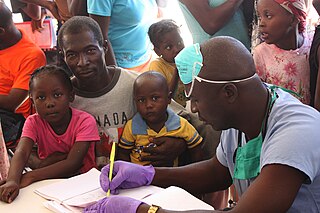
Partners In Health (PIH) is an international nonprofit public health organization founded in 1987 by Paul Farmer, Ophelia Dahl, Thomas J. White, Todd McCormack, and Jim Yong Kim.
Progressio (1940–2017) was an international development charity that enabled poor communities to solve their own problems by support from skilled workers. The organisation attempted to influence decisionmakers, secular and religious alike, to support liberation movements and to guard against human rights abuses. It also lobbied legislators to change policies that keep people poor. It had been known earlier as The Catholic Institute for International Relations and the Sword of the Spirit.
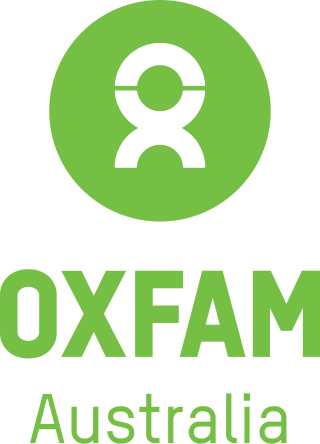
Oxfam Australia is an Australian, independent, charity, not-for-profit, secular, community-based aid and development organization, and is an affiliate of the Oxfam International Confederation. Oxfam Australia's work is divided into four broad categories covering climate justice, Economic Justice, Gender Justice and First Peoples Justice as well as Humanitarian response. They believe that poverty in the 21st century is less a problem of scarcity but the result of how resources, opportunities, and protections are distributed and wielded.
The Pontifical Council Cor Unum for Human and Christian Development was a pontifical council of the Roman Curia of the Catholic Church from 1971 to 2016.

Restless Development is a non-governmental organization which organizes volunteer placements for young people in the areas of civic participation, livelihoods and employment, sexual rights, and leadership. It operates in 74 countries in Africa and Asia, as well as the United States and United Kingdom.

Global Witness is an international NGO that works to break the links between natural resource exploitation, conflict, poverty, corruption, and human rights abuses worldwide. The organisation has offices in London and Washington, D.C.
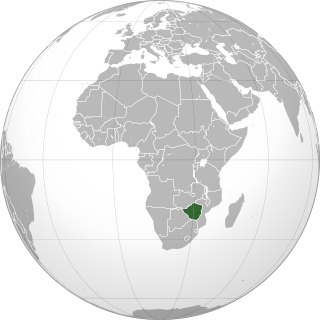
Lesbian, gay, bisexual, transgender, and queer (LGBTQ) people in Zimbabwe face legal challenges not experienced by non-LGBTQ residents. Since 1995, the Government of Zimbabwe has carried out campaigns against LGBTQ rights. Sodomy is classified as unlawful sexual conduct and defined in the Criminal Code as either anal sexual intercourse or any "indecent act" between consenting adults. Since 1995, the government has carried out campaigns against both homosexual men and women.

Caoimhe Butterly is an Irish human rights campaigner, educator, film-maker and therapist who has spent over twenty years working in humanitarian and social justice contexts in Haiti, Guatemala, Mexico, Palestine, Iraq, Lebanon and with refugee communities in Europe.
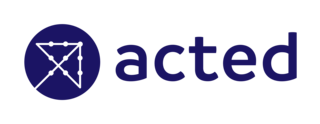
Acted is a French international solidarity non-governmental organization (NGO), founded in 1993. It is headquartered in Paris.

Fern is a Dutch foundation created in 1995. It is an international Non-Governmental Organization (NGO) set up to keep track of the European Union's (EU) involvement in forests and coordinate NGO activities at the European level. Fern works to protect forests and the rights of people who depend on them.

Development and Peace, officially the Canadian Catholic Organization for Development and Peace and also known as Caritas Canada is the official international development and humanitarian aid agency of the Catholic Church in Canada. It is a member of Caritas Internationalis, CIDSE, the Halifax Initiative and many other networks.
The Catholic Campaign for Human Development (CCHD) is the national anti-poverty and social justice program of the United States Conference of Catholic Bishops (USCCB)
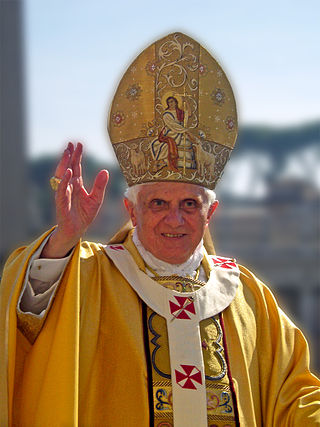
Caritas in veritate is the third and last encyclical of Pope Benedict XVI, and his only social encyclical. It was signed on 29 June 2009 and was published on 7 July 2009. It was initially published in Italian, English, French, German, Polish, Portuguese, and Spanish.

The legal status of prostitution in Africa varies widely. It is frequently common in practice, partially driven by the widespread poverty in many sub-Saharan African countries, and is one of the drivers for the prevalence of AIDS in Africa. Senegal and Côte d'Ivoire permit the operations of brothels. In other countries, prostitution may be legal, but brothels are not allowed to operate. In some countries where prostitution is illegal, the law is rarely enforced.
Plan International UK is the UK branch of the global children's rights non-profit organisation Plan International. Plan UK which works to advance equality for girls all over the world through sustainable development and humanitarian response activities in 50 countries across Asia, Africa and the Americas. The organisation also helps communities to build resilience prior, during and after emergencies. It is a registered charity in the UK and has no religious affiliations. It focuses on issues that particularly face girls of all ages. Plan International UK works across a range of sectors, including education, health, child protection and participation, economic security and water and sanitation. The organisation's current focus is the promotion of the rights of adolescent girls and disaster response and preparedness. Tanya Barron became Chief Executive of Plan International UK in January 2013 having been International Director at Leonard Cheshire Disability from 2004 to 2012. She holds various trusteeships and is currently a board member of the World Bank's Global Partnership on Disability and Development. In 2003 Barron was given the European Woman of Achievement (Humanitarian) award.

Caritas Internationalis is a confederation of 162 national Catholic relief, development and social service organisations operating in over 200 countries and territories worldwide. The name Caritas Internationalis refers to both the global network of Caritas organisations and to its general secretariat based in the Vatican City in Rome, Italy.

Irish Aid is the Government of Ireland's official international development aid programme. Irish Aid is managed by the Development Co-Operation and Africa Division (DCAD) of the Department of Foreign Affairs (DFA). According to the OECD, Ireland’s total ODA increased in 2022, mostly due to higher in-donor refugee costs and higher contributions to international organisations. ODA represented 0.64% of gross national income (GNI). The Irish Aid programme is an integral part of Ireland's foreign policy.













